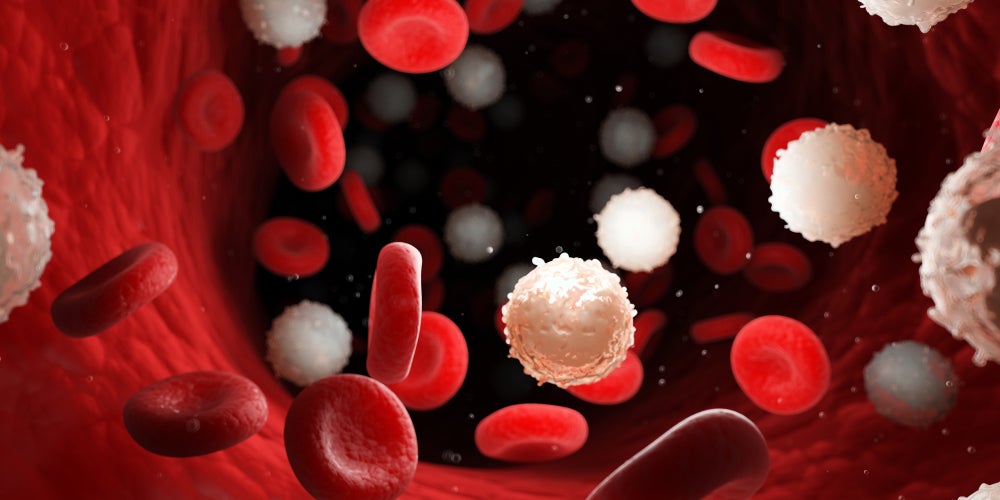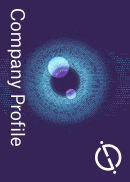
Acute leukaemias are aggressive blood cancers characterised by the rapid proliferation of malignant myeloblastic (acute myeloid leukaemia [AML]) or lymphoblastic (acute lymphoblastic leukaemia [ALL]) cells. Around 30% of AML patients carry mutations in the nucleophosmin gene (NPM1m), and 5% to 10% of acute leukaemias (AML and ALL) harbour histone-lysine N-methyltransferase 2A gene rearrangements (KMT2Ar). These genetic alterations are associated with a high risk of relapse after chemotherapy and hematopoietic stem cell transplant (HSCT), as well as a poor prognosis. Menin is a scaffold protein that forms a complex with KMT2A. In NPM1-mutant (NPM1m) or KMT2Ar cells, this complex activates HOX/MEIS1 gene expression, leading to the survival and proliferation of immature leukaemic blasts. There are currently no approved therapies targeting menin-KMT2A interaction.
Syndax Pharmaceutical’s revumenib (SNDX-5613) is a selective oral inhibitor of menin-KMT2A complex formation. Phase I of the AUGMENT-101 (NCT04065399) clinical trial showed that revumenib had clinically meaningful efficacy and safety in NPM1m and KMT2Ar heavily pre-treated acute leukaemic patients. The interim KMT2Ar cohort results of the pivotal Phase II AUGMENT-101 trial were presented at the 2023 American Society of Hematology (ASH) 65th Annual Meeting, held from 9 December to 12 December 2023.
The efficacy population included all patients with a confirmed KMT2Ar and study follow-up for at least six months (n=57). Study participants received 163mg of oral revumenib (95mg/m² if weighing under 40kg) and a CYP3A4 inhibitor every 12 hours in 28-day continuous cycles. In the efficacy population, 86% of patients had AML, 12% had acute ALL, and 2% had mixed-phenotype acute leukaemia or another subtype. Patients were heavily pre-treated with a median of 2 previous treatments (and a range between one and 11 lines of therapy), with 43.6% having received three or more prior therapies. 57.4% had relapsed or refractory (R/R) disease, 72% had received prior venetoclast, and 50% had prior allogeneic HSCT. The median age in the efficacy population was 34 years (a range of 1.3 years to 75 years, 22.8% were under the age of 18, 57.9% were female and 75.4% were Caucasian.
The objective response rate (ORR) in the efficacy population was 63.2% (n=36). The complete response (CR) rate plus CR with partial hematologic recovery (CRh) was 22.8%, the composite CR rate was 43.9%, the median duration of CR+CRh was 6.4 months, and 70% of patients with CR response and with reported measurable residual disease (MRD) status achieved MRD negativity (7/10). A total of 38.9% of responders (14/36) proceeded to HSCT, with half resuming revumenib post-HSCT.
The safety population included all patients who received at least one dose of revumenib, regardless of their KMT2Ar confirmation or follow-up in the trial (n=94). Treatment-related adverse events (TRAEs) occurred in 81.9% of the safety population. The most common TRAEs (≥20%) were nausea (27.7%), differentiation syndrome (26.6%), and QTc prolongation (23.4%). Overall, 6.4% of patients discontinued therapy due to TRAEs. The study has met its endpoints and the KMT2Ar cohort stopped early for efficacy, while the NMP1m cohort is ongoing.
Based on the positive AUGMENT-101 results, Syndax Pharmaceuticals plans to submit a new drug application for revumenib for KMT2Ar R/R acute leukaemia by the end of 2024. If approved, revumenib will have first-to-market advantage with the potential for label expansion into other patient segments and earlier lines of treatment through ongoing trials of combinations with the standard of care treatments in AUGMENT-102 (fludarabine-cytarabine chemotherapy, R/R paediatric acute leukaemia) and BEAT AML (azacitidine and venetoclax, newly diagnosed patients aged older than 60 years) clinical trials.
Access the most comprehensive Company Profiles
on the market, powered by GlobalData. Save hours of research. Gain competitive edge.

Company Profile – free
sample
Your download email will arrive shortly
We are confident about the
unique
quality of our Company Profiles. However, we want you to make the most
beneficial
decision for your business, so we offer a free sample that you can download by
submitting the below form
By GlobalData
Revumenib is slightly ahead in a close race with Kura Oncology’s ziftomenib. In Phase I of the KOMET-001 trial, ziftomenib demonstrated similar CR+CRh rates as revumenib in NPM1m AML (around 30%), but inferior CR+CRh rates in KMT2Ar patients (5.6% versus 22.8%). The pivotal KOMET-001 Phase II NPM1m AML expansion cohort is currently underway. Two more menin inhibitors, Sumitomo Pharma’s DSP-5336 and Daiichi Sankyo’s DS-1594, are also in Phase II of clinical development for blood malignancies (AML, ALL, chronic lymphocytic leukaemia, diffuse large B cell lymphoma and myelodysplastic syndrome). Menin inhibitors’ mechanism of action (gene-specific transcription inhibition) presents an opportunity to halt or reverse the progression of metabolic diseases such as diabetes. Notably, Biomea Fusion’s covalent menin inhibitor icovamenib (BMF-219) is being investigated in R/R AML (COVALENT-101) and has shown positive results in trials in type 2 diabetes (COVALENT-111). GlobalData’s Consensus Analyst Forecast database projects global sales for revumenib, ziftomenib, and icovamenib to reach $557 million, $358 million, and $219 million respectively by 2029.
- SEO Powered Content & PR Distribution. Get Amplified Today.
- PlatoData.Network Vertical Generative Ai. Empower Yourself. Access Here.
- PlatoAiStream. Web3 Intelligence. Knowledge Amplified. Access Here.
- PlatoESG. Carbon, CleanTech, Energy, Environment, Solar, Waste Management. Access Here.
- PlatoHealth. Biotech and Clinical Trials Intelligence. Access Here.
- Source: https://www.clinicaltrialsarena.com/analyst-comment/syndax-revumenib-r-r-kmt2a-rearranged-acute-leukaemia/
